The Pleasures of Reading in an Age of Distraction
THE
PLEASURES
of
READING
in an
AGE
of
DISTRACTION
Alan Jacobs


Oxford University Press, Inc., publishes works that further Oxford Universitys objective of excellence in research, scholarship, and education.
Oxford New York
Auckland Cape Town Dar es Salaam Hong Kong Karachi Kuala Lumpur Madrid Melbourne Mexico City Nairobi New Delhi Shanghai Taipei Toronto
With offices in
Argentina Austria Brazil Chile Czech Republic France Greece Guatemala Hungary Italy Japan Poland Portugal Singapore South Korea Switzerland Thailand Turkey Ukraine Vietnam
Copyright 2011 by Alan Jacobs
Published by Oxford University Press, Inc.
198 Madison Avenue, New York, New York 10016
www.oup.com
Oxford is a registered trademark of Oxford University Press
All rights reserved. No part of this publication may be reproduced, stored in a retrieval system, or transmitted, in any form or by any means, electronic, mechanical, photocopying, recording, or otherwise, without the prior permission of Oxford University Press.
Jacobs, Alan, 1958
The pleasures of reading in an age of distraction / Alan Jacobs.
p. cm.
Includes bibliographical references.
ISBN 978-0-19-974749-8
1. Reading. 2. Self-culture. 3. Study skills. I. Title.
PN83.J36 2011
028.8dc22 2010034350
1 3 5 7 9 8 6 4 2
Printed in the United States of America
on acid-free paper
For my students, with whom I have read, and will read, so much
Caveat lector Those who have always disliked reading, or who have been left indifferent by it, may find little of interest here. But those who have caught a glimpse of what reading can givepleasure, wisdom, joyeven if that glimpse came long ago, are the audience for whom this book was written.
Those who have always disliked reading, or who have been left indifferent by it, may find little of interest here. But those who have caught a glimpse of what reading can givepleasure, wisdom, joyeven if that glimpse came long ago, are the audience for whom this book was written.
The Pleasures of Reading in an Age of Distraction
Yes, we can! A while back my teenage son drifted into the room where I was reading, tilting his head to catch the title of the book in my hands. It was that venerable classic How to Read a Book, by Mortimer Adler and Charles van Doren. Oh man, he said, I had to read that in school last year. Maybe I learned something about how to read a book, but after that I never wanted to read a book again.
A while back my teenage son drifted into the room where I was reading, tilting his head to catch the title of the book in my hands. It was that venerable classic How to Read a Book, by Mortimer Adler and Charles van Doren. Oh man, he said, I had to read that in school last year. Maybe I learned something about how to read a book, but after that I never wanted to read a book again.
In 1940 Mortimer Adler published the first edition of How to Read a Book and was, he later commented, surprised at its immediate and lasting popularity. Although Adler was unabashedly elitist in some respectsthe belief that some books are Great Books and that those are the books most worth reading animated his whole lifeHow to Read a Book belongs to a fine tradition of American populism. The conviction underlying the whole enterprise was that you need not have an expensive university education in order to be a skillful reader of even the most challenging texts. Rather, you just need a bit of guidancea single volumes worth of recommended strategies and tacticsand you can take it from there, following your own path to erudition, making yourself worthy of the Great Tradition of which Adler himself was but a humble acolyte. Adlers guide was to reading what Charles Atlass Dynamic Tension program was to bodybuilding: a common-sense, practical program for the average American with some do-it-yourself gumption. (There are passages of exhortation in How to Read a Book that sound quite a lot like Charles Atlas: With nothing but the power of your own mind, you operate on the symbols before you in such a way that you gradually lift yourself from a state of understanding less to one of understanding more. This is the intellectual equivalent of Atlass dynamic tension approach to bodybuilding, which rather than using weights pits muscle against muscle.) And in an age when relatively few Americans attended college, and still fewer attended colleges with a liberal-arts emphasis, there was, it turned out, a great hunger for the kind of confident instruction Adler offered.
When, three decades later, Adler enlisted Charles Van Doren to help him revise his guide to reading, the American social fabric had altered considerably. Thanks in large part to the postwar GI Bill, which paid college tuition for returning soldiers, a much higher percentage of Americans were attending college. One might think that in such circumstances Adlers direction would be less valuable. But, he argued, universities focused so much on the dissemination of facts and so little on the pursuit of understanding that the reading abilities of the American public had not been much improved by the rise in college attendance. Moreover, something else had occurred since 1940: television. Americans were becoming ever more distracted and ever less instructed; reading was becoming an increasingly unfamiliar and indeed unnatural practice; and therefore his book remained as timely as it had ever been.
In this claim Adler was probably right. But what would he have said if in 1972 he had been granted a vision of the next thirty years of American history? Seeing the innumerably greater distractions available to us, he may well have given up the cause of reading as a lost one. After all, in 1972 few Americans had access to more than four television stations, and the only computers were elephantine hulks locked in the basements of universities and a few large corporations.
But despite the lamentations of many contemporary Jeremiahs, the cause of reading is not a lost one by any means. There are millions of devoted readers in America, as can be evidenced by the hundreds of enormous Borders and Barnes & Noble bookstores (despite the recent struggles of those chains), by the huge success of Amazon.com as a seller of books, by Oprahs Book Club, and by the most recent NEA survey of reading in America, which reveals a surprising uptick in the reading of literary fiction and other long-form works.
And consider this: in January 2008 Steve Jobs, the head of Apple Computer, was interviewed by reporters from the New York Times, and while Jobs was primarily interested in celebrating Apples newest products, he was willing to announce his views on other matters as well. For instance, Amazon.coms then-new electronic reading device, the Kindle: It doesnt matter how good or bad the product is, the fact is that people dont read anymore, he said. Forty percent of the people in the U.S. read one book or less last year. The whole conception is flawed at the top because people dont read anymore. Two years later he introduced Apples new product, the iPad, and emphasized the gadgets ties to Apples new online bookstore and its excellence as a medium for reading newspaper, magazines, and yes, even books. I dont think a highly exploitable clientele of readers spontaneously self-generated between 2008 and 2010.
I meet and talk to and hear from many readers: I regularly get emails and letters from readers of my previous books, and those readers seem to cover a remarkably broad spectrum of education and experience. Just in the past few weeks I have heard from three readers of my biography of C. S. Lewis: an email from a Canadian college student who had written a long post about it on her blog, a letter from a high school student in Florida who had typed and sent to me a one-page review of the book (she liked it overall, but found some passages confusing), and a long handwritten letter from an elderly woman in New York who half-a-century ago had corresponded with Lewis and wanted to give me an account of it. These are limited sorts of conversations, of course, but when I get to talk more fully with readers I discover that for all their enthusiasm they often lack confidence: they wonder whether they are reading well, with focus and attentiveness, with discretion and discernment.
Next page







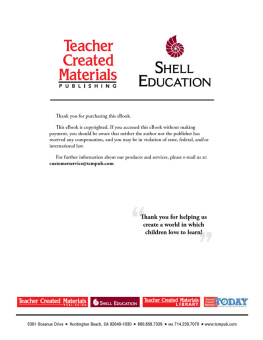
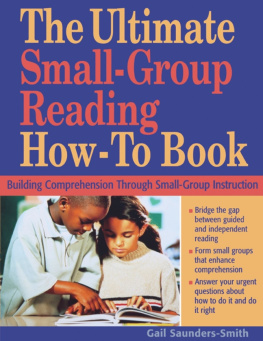
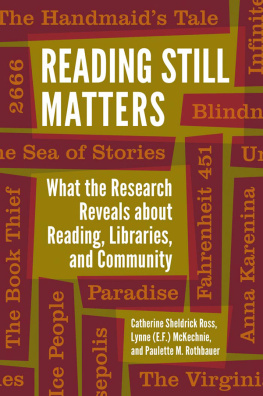
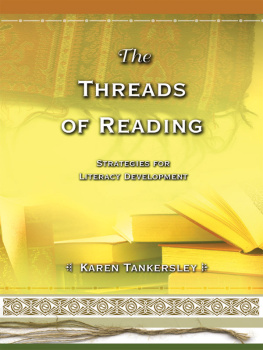
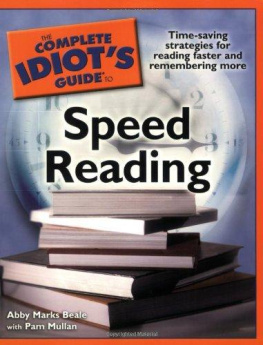

 Those who have always disliked reading, or who have been left indifferent by it, may find little of interest here. But those who have caught a glimpse of what reading can givepleasure, wisdom, joyeven if that glimpse came long ago, are the audience for whom this book was written.
Those who have always disliked reading, or who have been left indifferent by it, may find little of interest here. But those who have caught a glimpse of what reading can givepleasure, wisdom, joyeven if that glimpse came long ago, are the audience for whom this book was written.